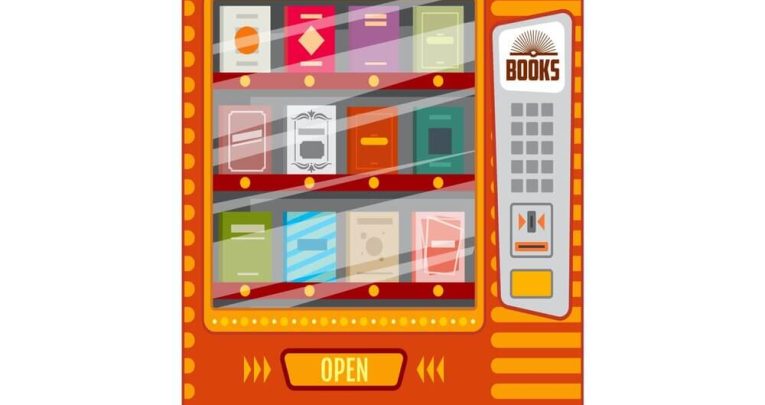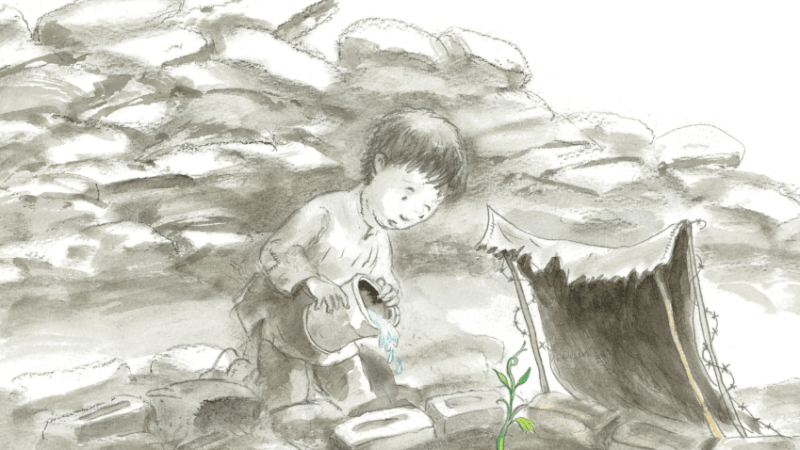Reading for pleasure – How one school encourages children with a book vending machine

How Little Parndon Primary has sparked reading for pleasure amongst pupils with a book vending machine…

- by Sian Cockman

Have you ever walked past one of those grabby machines on holiday? More often than not, this draws my own three children in and I end up spending a fortune and not winning, which inevitably leads to disappointment, tears and tantrums.
Another machine that has the same magnetism is a vending machine; even I struggle to walk past a vending machine and not look and see what entices me the most.
The idea sounds so much more exciting than just going to the shop and buying the same thing. You put your money in the slot, you choose what you want by pressing the magic combination of letters and numbers and each time you are guaranteed a prize!
Making books fun
I wanted to bring this excitement to my school. Just a few years ago, reading wasn’t seen as fun and it certainly wasn’t high profile.
Don’t get me wrong, the reading records were signed and children were reading at home and school, but there just wasn’t that buzz of book talk.
We began a mission – to get all teachers, children and parents reading. We obviously did all the usual things that bring reading to the front of everyone’s minds… World Book Day activities and costumes; book fayres; competitions for reading in wild and wacky places; everyone reading at the end of the school day; but we were still missing the fun element of reading.
Children were not getting excited enough about books and we wanted this to change.
We started with introducing reading mentors (children based in Year 5 and 6) who would read to whole KS1 classes. We set up reading buddies for those children who may not get to read as much as they would like to at home.
We began entering competitions that encouraged reading and exploring themes the books. We even won a contest that challenged pupils to decide what career a book character should have, and had a visit from an author, which sparked excitement.
I then began to look at other things that get children talking on the playground. There was real buzz when children would discuss The Masked Singer TV show with us.
I decided to try and recreate this excitement, but around reading. We had already tried bedtime reading stories with staff published on the internet, but this had a twist.
Each day, pupils were given clues as to the identity of the teacher behind the emoji masks who read a book excerpt from the school’s library.
We introduced The Masked Reader through lockdown and soon had the whole school community involved. It wasn’t just the children guessing, but staff and parents, too!
We now had families hooked on reading, and discussions about books were happening at home as well as school. This felt like mission accomplished – but, it wasn’t.
Reading for pleasure ideas
We had got to a stage where reading was happening at all times of the day, but many pupils were still only reading because they were asked to.
This, in our opinion, was not enough. We tried various ideas, including building a reading shed and garden within the playground.
Then, a new idea struck. I introduced the idea of book vending machines to our headteacher. There were of course questions… How would we fill the machines with books? Who would buy them? Where would the machine go? How could we afford this? Would this really excite the children?
We decided to give it a go and held a sponsored read, challenging pupils to read as much as they could over a week. We raised £2,000, boosted with another £1,000 from a national book company. The money raised filled the vending machines with books I knew the children would love to read.
I began to worry that disappointment would fill the air once the children saw books instead of crisps and sweets, but straight after filling up the machines, I was so happy to walk out of my classroom to see teachers standing around the machine wanting a token to select a book.
I knew this was going to be good – if it has excited grown adults, the children would love it! I wasn’t wrong. Children often stop to look and see what books are on offer, and they have conversations with each other and adults about how they are going to try to win one.
Some pupils have even asked for books to be reserved. We finally had every child looking at reading as a good thing and wanting to pick up books, talk about books and earn new ones.
How does it work?
We have a behaviour journey at school, that records the choices children make with their actions. We found that the children were so excited about the book vending machine, that we can use the books as behaviour prizes.
Each child has their own bookmark, and when they make an ‘outstanding choice’ with their behaviour, they receive a sticker for their bookmark. If they earn three stickers in a row, they receive a golden token for the vending machine.
And, there we have it. The new vending machines are the talk of the school and I can now say that, at Little Parndon Primary Academy, we all read for pleasure.
How to promote the love of reading
- Aim big. If you want results, invest time and money to achieve them. Find ways to raise money to support your journey through things like sponsored events. Many book companies will offer free books if you raise a certain amount.
- Do your research. What interests the children and gets them talking? Begin with completing a pupil survey to gauge children’s opinions on reading. This includes finding the types of texts children like to read, where they like to read and with whom. Also, remember to listen to playground chat.
- Include the whole community. Get teachers and parents on board with your mission. Begin with staff meetings getting teachers understanding the whys of everything you are planning to do. Make them part of the journey with you. Reading mornings, parent workshops (while the children have hot chocolate, cookies and bedtime stories with teachers), secret readers coming into school for reading time creates an element of excitement.
- Make reading the centre of everything every class teacher does. Think about the small things that all add up. Reading areas (the staff in our school have competitions with each other to try and make the best area), competitions in-house and countrywide, reading mentors, displays around the school promoting pupils’ and teachers’ favourite books, rewards in assemblies and in class to praise children trying hard with their reading.
- Find or create areas in the school which are dedicated to reading. A reading area in the playground is a great start especially for those children who are not keen on running around. The comfier the better!
Sian Cockman is assistant headteacher and ITT/NQT Lead at BMAT Primary, and reading/phonics lead at Little Parndon Primary Academy in Harlow, Essex.











